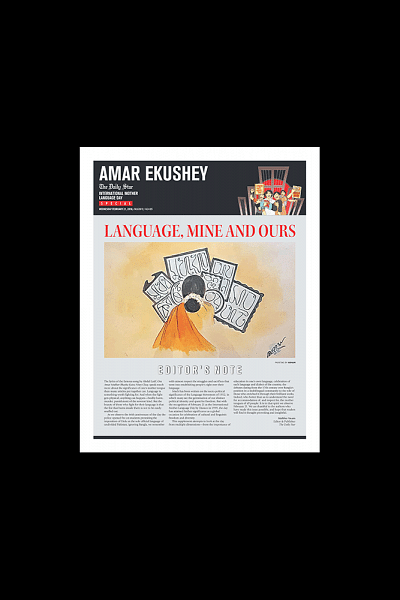Language, mine and ours

The lyrics of the famous song by Abdul Latif, Ora Amar Mukher Bhasha Kaira Nitey Chay, speak much more about the significance of one's mother tongue than many articles put together can. Language is something worth fighting for. And when the fight gets physical, anything can happen—bodily harm, murder, punishment of the severest kind. But the beauty of those who fight for their language is that the fire that burns inside them is not to be easily snuffed out. As we observe the 66th anniversary of the day the police opened fire on students protesting the imposition of Urdu as the sole official language of undivided Pakistan, ignoring Bangla, we remember with respect the struggles and sacrifices that went into establishing people’s right over their language. Much has been written on the socio-political significance of the Language Movement of 1952, in which many see the germination of our distinct political identity and quest for freedom. But with the recognition of February 21 as the International Mother Language Day by Unesco in 1999, the day has attained further significance as a global occasion for celebration of cultural and linguistic freedom and diversity. This supplement attempts to look at the day from multiple dimensions—from the importance of education in one's own language, celebration of each language and dialect of the country, the debates dating from the 17th century over Bangla’s position in a multilingual community to the role of those who enriched it through their brilliant works. Indeed, who better than us to understand the need for accommodation of, and respect for, the mother tongues of all people. It is in that spirit we observe February 21. We are thankful to the authors who have made this issue possible, and hope that readers will find it thought-provoking and insightful.
Mahfuz Anam
Editor & Publisher
The Daily Star

 For all latest news, follow The Daily Star's Google News channel.
For all latest news, follow The Daily Star's Google News channel. 



Comments